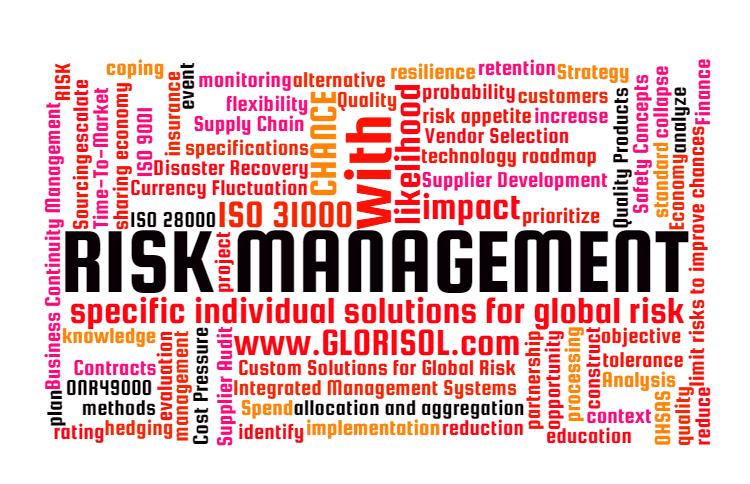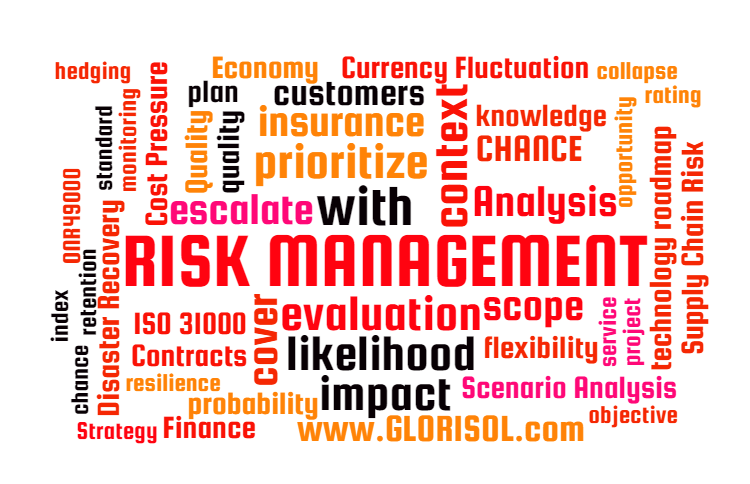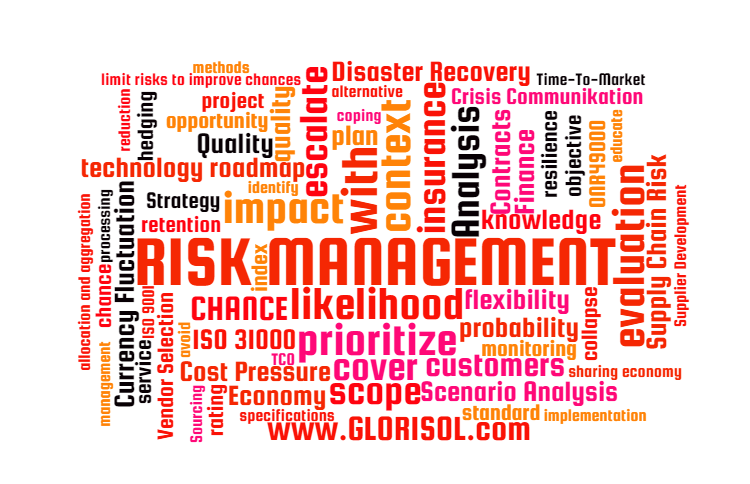Each organization is subject to internal and external influences. Highly motivated and well-structured contributors pursue their objectives, plan and make decisions.
Risk is the effect of uncertainty on the achievement of objectives. Uncertainty arises from partial or entire unavailability of information. And the impact can be positive or negative.
Risk management, therefore, is the entirety of coordinated activities aligned to the organization’s risks.
Applying risk management protects against unpleasant surprises and is a management mission for any kind of organization. It serves the continuing existence of the organization and requires understanding for complexity, common sense in planning and execution as well as long-term orientation.
Those who conduct Risk Management will typically start defining the framework conditions, then identify the risks, analyze them and carry out risk assessments. Following the risk treatment a result test compares the risk before vs. after its treatment. This leads to a re-evaluation serving on one hand as a performance rating of the risk management and, on the other, as the start of another risk management cycle.
The crucial factors that determine each individual risk item have to be assessed and evaluated individually. These factors are 1st the probability (or likelihood) of occurrence; and 2nd the magnitude of the impact an event has on the organization.
Special areas of risk management are Emergency-, Crisis- and Continuity Continuity Management
Do you have more in-depth questions or do you need support on Risk Management? Please send an INQUIRY



